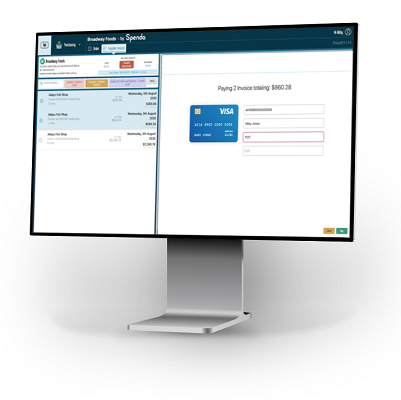
Pay One, Pay All – The fintech innovation to rival Afterpay
Australian software developers recently launched SpendaCollect, a new fintech innovation which allows customers to track, group and batch-pay all of their outstanding invoices simultaneously.
The new software will also offer postpay options, where customers can negotiate payment options, including buy-now, pay-later and pay-by-instalments.
Spenda Managing Director Adrian Floate said providing customers with easy and flexible payment options is the key to getting paid quickly.
“Afterpay and Zip have enjoyed exponential growth in Australia by allowing customers to pay off goods and services in interest-free instalments,” Mr Floate said.
“We’ve essentially flipped the service to also cater for business-to-business transactions,” he said.
“Allowing businesses to process all of their invoices in one place saves time, money and resources for all parties.”
Mr Floate said advantages of the SpendaCollect e-invoicing software include:
Prevents errors – Automated, digital systems remove errors caused by manual data entry.
Clear, flexible payment options – allow customers and suppliers to agree on payment terms and ensures certainty on debt recovery for the seller.
Automated reminders – provides automatic reminders when invoices are overdue.
Automated updates and reconciliation – the accounting system of the customer and business is updated in real-time when a payment is settled.
- One receipt – when customers pay off multiple invoices at once, they receive one digital receipt for the transaction.
Mr Floate said making paying simple is the key to increasing the amount of money coming into a business.
“With boosted cash flow, business owners can pay their expenses, reach new customers and expand,” Mr Floate said.
Mr Floate said despite the exciting advances in payment collection technology, most small-to-medium-sized businesses (SMBs) in Australia still use outdated manual data entry processes to handle their invoices.
“For many businesses, the manual effort and costs associated with managing and reconciling accounts receivable is a huge drain on productivity,” he said.
Research by SMB funder Scottish Pacific in its 2020 SME Growth Index revealed SMEs have about 29 per cent of their revenue tied up in outstanding invoices.
A Xero study of 150,000 SMBs in Australia, found 53 per cent of all invoices sent were paid late, another 20 per cent were for the incorrect amount and 20 per cent were paid to the wrong business.
The Xero research revealed poorer outcomes for small businesses with long payment wait times.
“Our analysis shows that SMBs that are paid more slowly than average have about a third lower revenue growth than those paid faster than average,” the report said.


